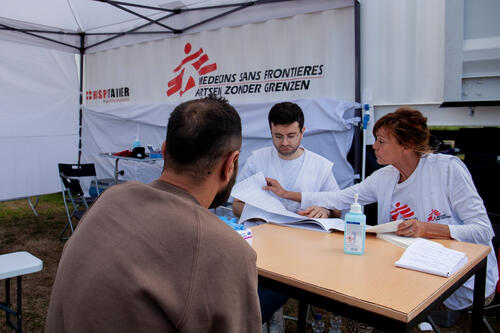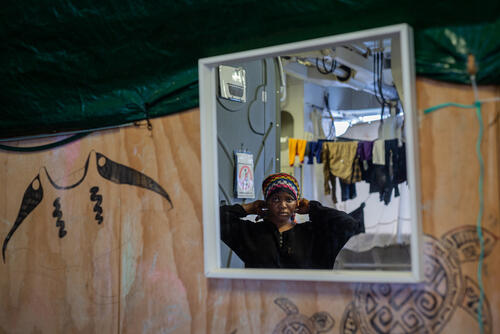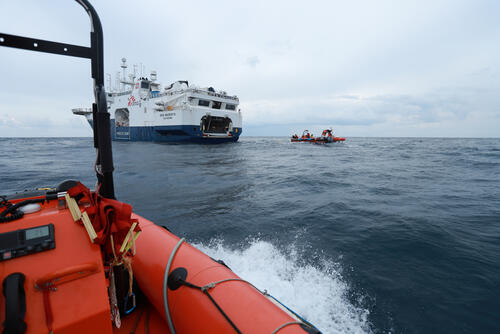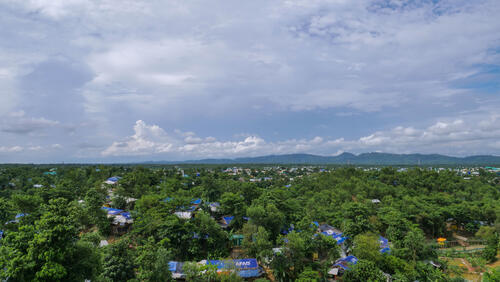- MSF’s response in Ter Apel, the Netherlands’ main reception centre for asylum seekers, has ended
- Shelter and sanitation provision outside the reception centre has improved significantly, with a decrease in patient numbers and the severity of medical conditions
- MSF calls on the Dutch government to ensure that people seeking asylum in the Netherlands have access to medical care and humane reception conditions.
Amsterdam– Médecins Sans Frontières (MSF) has ended its intervention in The Netherlands. An MSF team had been present outside the main Dutch reception centre for asylum-seekers in Ter Apel since 25 August to provide basic healthcare to hundreds of people sleeping outside while awaiting registration.
The team was able to provide nearly 450 medical consultations and more than 200 mental health consultations. Patients came from Syria, Iraq, Iran, Turkey, Somalia, Eritrea and West Africa. There were many people suffering from skin infections due to unhygienic living conditions, and neglected wounds that had been caused by walking for weeks on end.
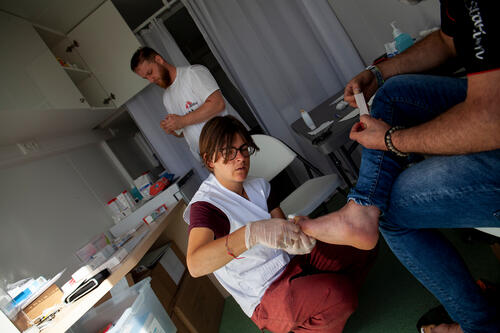
There were also many who were chronically ill and who had been without medication for weeks or months on end. Others were in need of mental healthcare for symptoms including anxiety, panic attacks, depression and psychosis – conditions exacerbated by the uncertainty of the situation in Ter Apel and the lack of information about what was going to happen to them.
“We found people who had been deprived of medical care for a long time and we provided lifesaving assistance on several occasions,” says Karel Hendriks, emergency coordinator.
“People seeking asylum in the Netherlands must be able to access medical care,” he says. “We must not forget it is the responsibility of the Dutch government to provide asylum seekers with adequate care and humane reception conditions.”
We must not forget it is the responsibility of the Dutch government to provide asylum seekers with adequate care and humane reception conditions.Karel Hendriks, emergency coordinator
Several weeks ago, the situation in Ter Apel was increasingly inhumane and unacceptable. Today, the number of patients and the severity of their medical conditions has decreased and shelter and sanitation provision outside the reception centre has improved significantly.
To prevent unnecessary medical problems, it is essential that people seeking asylum have decent living conditions, and that new arrivals are triaged properly so that those with serious medical conditions are not overlooked. Organisations currently providing assistance to asylum seekers must be adequately supported by the Dutch government.
“Even when people seeking asylum cannot be accommodated in existing reception locations, they are still entitled to medical care,” says Judith Sargentini, director of MSF Netherlands. “Outside the facility does not mean outside the law. The many vulnerable people who are still being shifted from location to location deserve humane treatment."



